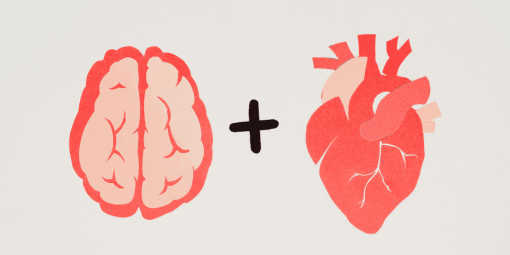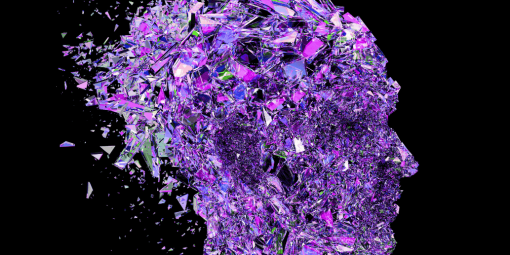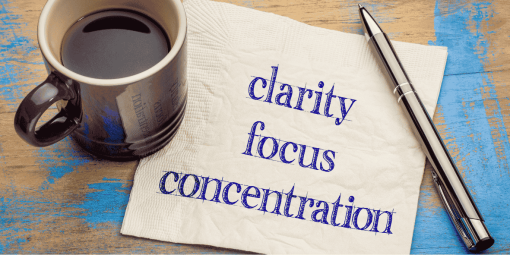Introduction
In many cultures, cheating is seen as a betrayal that leaves deep emotional scars. The consequences of infidelity extend far beyond the immediate heartbreak, affecting the psychological well-being of both the cheater and the cheated. Understanding this impact is crucial for those who have experienced such pain, as well as for individuals seeking to make sense of their relationships.

The Emotional and Psychological Impact of Infidelity
When trust is broken, it disrupts the framework of love and security, making rebuilding incredibly challenging. However, examining the effects of cheating can be the first step toward healing and moving forward. Navigating the recovery process requires insight into the social and psychological dimensions of betrayal. For many, karma serves as a comforting belief, offering a sense of justice as they begin the transformation from pain to growth. Addressing the emotional turmoil caused by cheating is a significant part of this journey. The potential for healing and even beneficial personal growth lies in focusing on self-worth, exploring new perspectives, and shaping a stronger future. While the process of rebuilding trust is complex, it is possible to find peace and regain stability in relationships by understanding the deeper role that betrayal plays in personal transformation.
The Law of Karma in Relationships
The concept of karma has been a central belief in various philosophies, religions, and systems of thought. Rooted in Hinduism and Buddhism, this principle follows the law of cause and effect, meaning an individual’s actions—whether positive or negative—will shape their future experiences. In relationships, this idea is often tied to justice, where deceit and betrayal eventually bring consequences to the cheater. As the adage goes, “what goes around, comes around.” Many believe that the impact of cheating manifests in different ways, from emotional distress to repeated cycles of broken trust.
Cheaters’ karma is not just about a single act of infidelity but can take multiple forms, affecting friendships, career opportunities, and overall peace of mind. The universe, often seen as an unseen force, has a way of restoring karmic balance, ensuring that cheaters face the consequences of their actions. Even without scientific evidence to prove its existence, many people find comfort in this idea, as it prevents wrongdoers from escaping responsibility. While some believe karma lets a cheater off the hook, others focus on how their present actions influence their future. Whether one sees it as a cosmic boomerang or a social phenomenon, betrayal in relationships tends to come full circle, often in ways the cheater never expects.

15 signs karma in relationship is real
Karma is a powerful force that ensures justice in the matters of the heart. When someone cheats, a series of repercussions follows, affecting their future relationships. Cheaters often face distrust, emotional pain, and struggle to find true connection.
The cosmic consequence of cheating leads to regret and loneliness. Their actions eventually reflect back, creating a cycle of heartbreak. No one escapes the pain they cause—karma always finds a way.
Struggles of Cheaters
Cheaters often struggle to build trust in new relationships as the karmic consequences of their past behavior manifest in difficulties when forming bonds. Partners become understandably cautious, making it hard to connect. This direct reflection of their previous actions creates insecurity, further instigated by their cheating history.
Living with Guilt
The powerful weight of recurring guilt can linger long after an affair, causing internal turmoil and constantly eating away at one’s peace of mind. This reminder of past actions affecting stability makes it difficult to enjoy life, as the emotional burden remains a lasting component of karma.
Losing Mutual Friends
The aftermath of betrayal often leads to isolation, as mutual friends react to the disruption of trust in their social network. The consequences of cheating extend beyond the relationship, with cheaters facing repercussions that reshape their support system and alter relationship dynamics.
Trust Issues
The harsh lesson of karma often leaves cheaters haunted by the possibility of betrayal in their own relationships. This psychological impact creates anxiety and fear, making them constantly doubt their partner’s intentions. The experience of inflicted pain comes full circle, serving as a mirror reflection of their own deceit. This realization brings a profound suffering, forcing them to confront the consequences of their actions firsthand.
Social Backlash
The judgment that follows cheating can leave a tarnished image in both social and professional circles. Once considered trustworthy, cheaters may find their reputation permanently strained, leading to missed opportunities and damaged relationships. Being seen as untrustworthy often becomes their fate, as the consequence of their choices continues to affect their personal and professional life.
Estranged Relations
The perception of cheating among loved ones can result in a shift in how they are viewed, leading to the loss of respect from both family and peers. The social judgment that follows creates strained relationships, as long-standing emotional bonds suffer. This damage can take years to repair, if at all, as trust once broken is not easily restored.
Painful Endings
A romantic relationship built on infidelity often leads to chaotic endings filled with pain and struggles. The patterns of instability tend to mirror the past, creating a cycle of emotional turmoil. Moving forward into the future becomes difficult as trust issues linger, making it hard to form stable connections. The dynamics of betrayal leave lasting scars, ensuring that past mistakes continue to affect new relationships.
Silent Suffering
For cheaters, the psychological toll of guilt can cause them to withdraw emotionally, sabotaging their own ability to form meaningful connections. This self-fulfilling prophecy makes them feel unworthy of love, creating an internal barrier that prevents genuine intimacy. As a result, they struggle with self-doubt, unknowingly pushing away partners and reinforcing a cycle of emotional detachment.
Broken Finances
The repercussions of infidelity can extend beyond emotions, leading to tangible losses. Cheating often introduces complications like financial strain, particularly in divorces where assets are divided. The deceit that once seemed thrilling can result in a hefty consequence, proving that karma manifests in various forms—sometimes hitting where it hurts the most.
Parental Challenges
Infidelity does not just affect partners; it leaves children as collateral damage in its wake. The parent-child relationship often suffers a deterioration, as cheating introduces a negative shift in trust and stability. The reverberating effects of betrayal become a primary example of karma, where past actions begin reflecting in the most unexpected scenarios. Every aspect of parenting is thrown into a different light, making it harder to rebuild bonds that once seemed unbreakable.
Emotional Burnout
For cheaters, the stress of managing deception and dealing with the fallout of being discovered takes a toll. Anxiety creeps in, leading to health decline and various stress-related problems. The emotional and physical consequences of their actions serve as proof that karma shows itself in significant ways. The body reacts to guilt and lies, making these effects impossible to ignore.
Lost Identity
A cheater’s actions do not just hurt others—they reflect inward, leading to a drop in self-esteem. The realization of the hurt they have caused results in internal suffering and a negative self-image. Judgment from others and the fear of being exposed contribute to their reluctance to engage in new opportunities or social interactions. As their self-worth diminishes, so does their ability to move forward without the weight of their past.
Attachment Issues
A history of cheating can create a lifelong struggle in forming deep connections with new partners. The past actions of betrayal often leave cheaters haunted, making it difficult to establish genuine bonds. As a consequence, karma introduces a barrier to intimacy and trust, keeping their relationships at a surface level rather than developing true depth. Without emotional accountability, future connections remain superficial, preventing meaningful attachment.
Crisis of Faith
Many cheaters eventually find themselves reflecting on the harm caused, leading to a spiritual or emotional crisis. They begin questioning their moral compass and values, facing deep introspection and turmoil. This internal battle is indicative of cheating karma, as it manifests as an intense internal conflict. For some, this distress becomes a catalyst for transformation, forcing them to confront their mistakes and seek personal growth.
Does Karma Work?
The question of whether karma is real in relationships often depends on beliefs and personal experiences. Some view it as a cosmic law of cause and effect, where deceit and betrayal bring negative consequences to the perpetrator. From this perspective, moral balance is maintained, and justice is served, even if it happens indirectly through life’s natural course.
Others see it as a psychological and social phenomenon, where cheating, guilt, and strife create a fallout that feels like an inevitable punishment. While some interpret it as mystical retribution, others take a more practical stance, recognizing its supernatural or natural impact on emotional and relational well-being. Either way, deceitful actions rarely go without consequences.
Why Karma Strikes?
he belief in cheaters’ karma is rooted in the concept of cosmic justice, where people trust that those who deceive will eventually face negative consequences. This idea stems from the need to correct the imbalance created by betrayal, reinforcing a sense of fairness in life.
For the cheated, it offers hope that wrongdoers will not go unpunished and that justice will be served in the long run. It provides comfort, a sense of validation, and the emotional closure needed to move forward, knowing that dishonesty rarely goes without repercussions.

Does Science Support Karma?
The existence of karma has not been scientifically proven or disproven, making it difficult to establish the validity of this belief. However, the potential consequences that cheaters often experience can be observed in real life. These perceived karmic repercussions tend to manifest in various aspects of life, including emotional well-being, social standing, and relationship dynamics.
While science cannot confirm a mystical force ensuring justice, studies show that dishonesty can lead to guilt, anxiety, and trust issues. The karmic nature of cheating might not be cosmic, but its consequences are undeniably real in the way they affect a person’s mental health and future relationships.
How Infidelity Affects Emotions
Cheaters often face significant consequences for their actions, with a lasting impact on their emotional and mental well-being. The effects of infidelity extend beyond the betrayed partner, affecting the social lives and relationships of those involved. Many experience overwhelming feelings of guilt, shame, and a heavy burden on their conscience.
The fear of being discovered can lead to constant anxiety, making them worried about the fallout. Trust once broken is difficult to restore, leaving both partners struggling with fear and uncertainty. In many cases, these consequences serve as a harsh reminder of the cost of betrayal.

How Cheating Ruins Reputations?
A cheater’s actions can leave a lasting impact on their social life. Their reputation is often damaged as friends, family, and acquaintances begin to see them in a different light. This shift leads to strained relationships, a loss of friendships, and weakened social connections.
The breach of trust in a relationship also affects its foundations, making intimacy and partnership difficult to rebuild. The partner may struggle with insecurity and doubt, making the betrayal feel irreparable. In many cases, this leads to a painful breakup, leaving the cheater to face the long-term consequences of their choices.
Finding Closure After Betrayal
Moving forward after being cheated on is a challenging but essential part of the healing process. It starts with self-care—engaging in activities that promote happiness and growth, such as exercise, meditation, and hobbies. Surrounding yourself with supportive people, including loved ones who offer comfort and reassurance, is crucial.
Setting boundaries and expectations in a relationship is necessary for rebuilding trust. Open and honest communication helps both partners express their feelings, concerns, and needs, fostering a healthier dynamic. Seeking guidance from a couples therapist can be a proactive step in discussing issues, preventing resentment, and ensuring conversations remain healthy and constructive.
Moving on takes time and effort, but it is possible with understanding, a willingness to change, and a focus on personal evolution rather than dwelling on the past.
Moving On or Holding On After Cheating?
Deciding whether to stay in a relationship after being cheated on is a difficult and deeply personal choice. Several factors play a role in this decision, including the severity and frequency of the betrayal, the likelihood of the behavior repeating, and the partner’s willingness to change and make amends.
A crucial factor is whether the cheating partner shows genuine remorse, commitment, and a sincere effort in rebuilding trust. The process of healing requires motivation, patience, understanding, and the ability to re-establish a sense of security in the relationship. However, if there is persistent mistrust, emotional manipulation, or a lack of respect, walking away may be the best decision for one’s mental and emotional well-being.
Seeking professional help, such as therapy, can provide an unbiased perspective and help navigate the complex emotions involved. Prioritizing personal growth, happiness, and emotional health is key to making the best long-term decision—whether that means rebuilding the relationship or moving forward independently.

Conclusion
Cheating is not just an act of betrayal; it is a catalyst for profound emotional, psychological, and social consequences. While the concept of karma may be debated, the reality of the aftermath is undeniable. From damaged reputations to lingering guilt, strained relationships, and lost trust, cheaters often face the repercussions of their actions in ways they never anticipated. Whether viewed through the lens of cosmic justice or natural consequence, the effects of infidelity have a way of coming full circle. For those who have been betrayed, healing comes from self-growth and understanding, while for those who deceive, the weight of their actions serves as a reminder that dishonesty carries its own inescapable price. In the end, integrity and trust remain the foundation of meaningful relationships, proving that loyalty and honesty always lead to a stronger, more fulfilling future.
read more about Silent Karma: What Happens to Those Who Betray Love
Does Karma Really Catch a Cheater? The Signs and Lessons
Healing from Cheating: Letting Karma Do Its Work
Karma in Love: When Trust Is Broken






